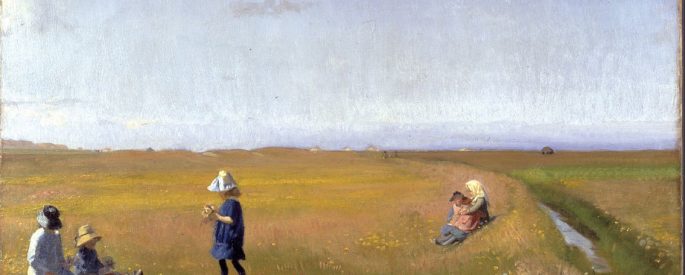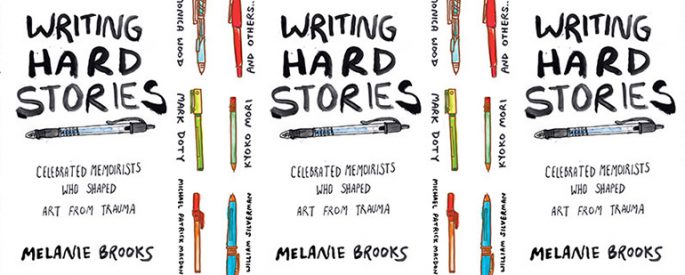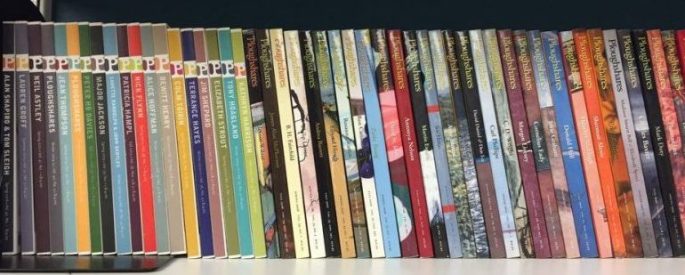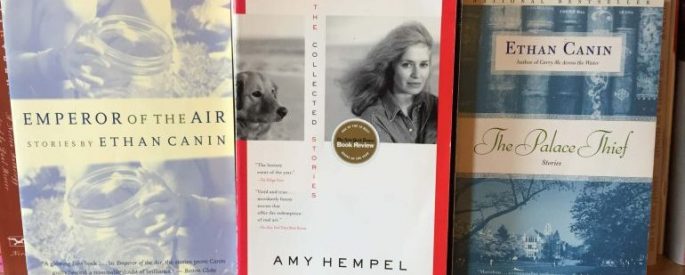Amy Hempel Archive
Fiction Responding to Fiction: Mary Robison and Amy Hempel

Examining Mary Robison’s “Widower” and Amy Hempel’s “Today Will Be a Quiet Day” will consider the ways in which Hempel responded to Robison’s story and how a story’s meaning shifts when a connection is known.
Review: WRITING HARD STORIES by Melanie Brooks
Author: Guest Reviewer | Categories: Book Reviews, Critical Essays, Nonfiction, Writing Advice No comments

Sharply written, these intimate and insightful exchanges dispel the myth that perhaps we all, writers or not, have come to believe about our own narratives, our own lives: “The worst story that we can tell ourselves is that we are alone.”
The End

My Twitter timeline is big on one meme these days: me then, me now. Sometimes it’s “me in 2006, me in 2016,” but mostly it’s “me at the beginning of 2016, me at the end.”
Fiction Responding to Fiction: Paley and Hempel

Grace Paley’s work has influenced many writers, both her contemporaries and those who followed. Amy Hempel has spoken often about Paley’s imprint on her work. For Hempel’s story “Today Will Be a Quiet Day,” Hempel has identified one Paley story as being particularly important.
In Defense of Lingering: Ethan Canin’s “Pitch Memory”

As a teacher, I am occasionally accused of lingering. One poem by Emily Dickinson can fill an entire class. An hour isn’t too long to unpack the final page of Mary Shelley’s Frankenstein.
Postcards from Unexpected Places

Like long handwritten letters and atlases, postcards descend from another world now deemed impractical. They belong to the world of Denis Breen in James Joyce’s Ulysses and Loyal Blood and his travels across the American West in Annie Proulx’s Postcards. Ruth, in Lorrie Moore’s story “Real Estate,” finds the
Origin Stories: Fiction by Prompt

How do great authors begin their fiction? With a line or a character, a memory or a mission? This year, as Ploughshares’s unofficial origin-story archivist, I’ll investigate. Because I’m a teacher, I started by looking for stories that grew out of writing assignments. Here’s what I found. 1. Amy
Interplanetary Postcards: Lessons from the Martian School of British Poetry
Emerging in the late 1970s and already diminishing by the early 1980s, Martianism was a short-lived yet influential movement in British poetry. Principally associated with Craig Raine and Christopher Reid*, it derived its name from the title poem of Raine’s second collection, A Martian Sends a Postcard Home (1979),
A Gathering of Particulars: On Building a Word-Hoard

It is fitting that the bowerbird roosts in the opening lines of Ted Hughes’s poem “A Literary Life,” for there is perhaps no better mascot for reader and writer both. The species is a known collector, spending the better part of the year building complicated huts from assorted novelties:
The Best Short Story I Read in a Lit Mag This Week: “Optimism” by Angie Kim
In Richard Bausch’s classic short story, “What Feels Like the World,” the looming grief over a mother’s death is conveyed through an impending vault at an elementary school gymnastics demonstration. In Amy Hempel’s classic, “When It’s Human Instead of When It’s Dog,” the tragic death of a spouse is
- 1
- 2